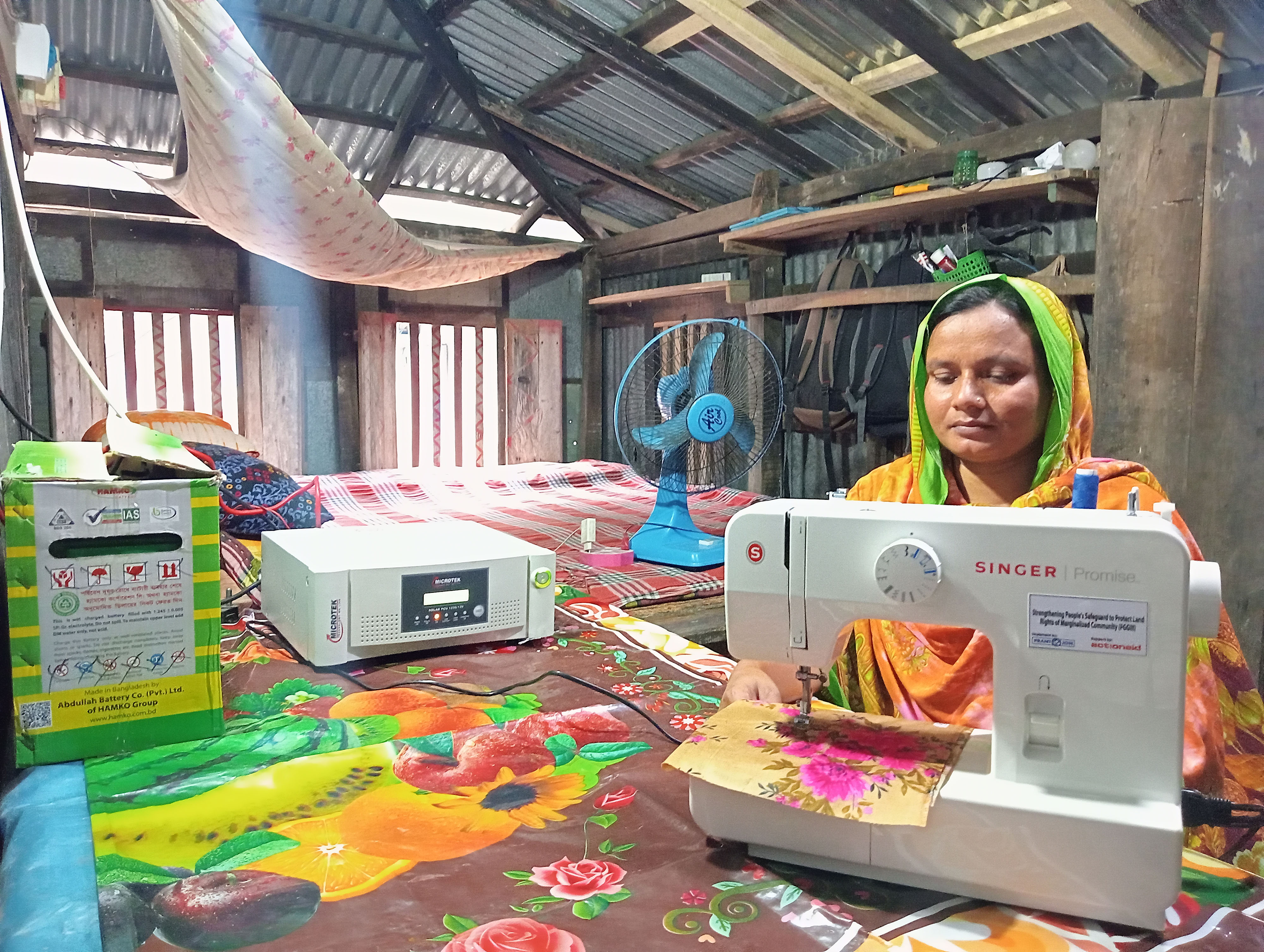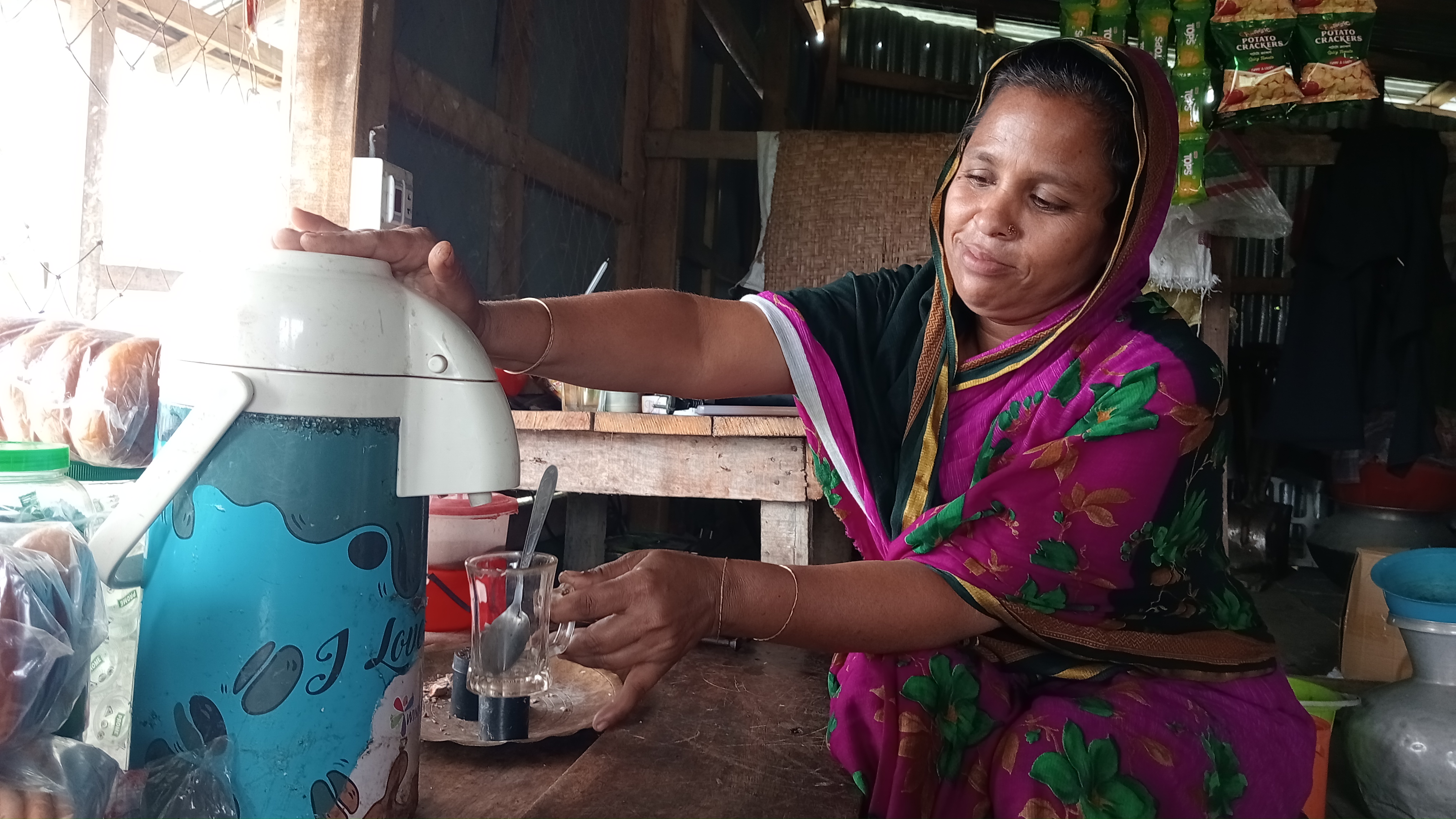Promoting Green Energy through the Enhancement of Just and Sustainable Value Chain, the FGG III (Fair, Green, and Global) project works with women in rural communities to encourage them to adopt renewable energy in sustainable and green alternative livelihood options. Through such interventions, the project is working to develop a fair and comprehensive power and energy policy that would ensure social and environmental justice by transitioning the energy sector value chain’s dependence from fossil fuel to renewable energy.
Sukhi Begum, from Modhupara village in the Dhankhali Union of Kalapara, ran a small store with her husband. The income from the store supported their family well. Unexpectedly, in 2023, Sukhi's husband passed away. His death was not only a deep emotional shock to the family but also left Sukhi and her family in financial distress.

In East Londa, another village, Soma experienced a similar condition when she lost her husband in 2017, who was a construction worker at the Payra 1320 Thermal Power Plant. Soma was left with the responsibility of taking care of their family's expenses alone. To cope with the newly emerged financial needs, she decided to explore learning resources and learned to sew. She wanted to use her sewing skills to generate income, but a sewing machine was still not affordable for her. Carrying on with strong determination, she saw the light of hope when she started getting support from others.
ActionAid Bangladesh and Prantojon provided Soma and Sukhi with solar-powered sewing machines. These machines helped to keep operational cost low and helped Soma to earn money by saving high electricity costs. Sukhi Begum said, "I am supporting my son's education with my income," while Soma added, "My operational costs are lower because my sewing machine uses solar energy, which allows me to provide more for my family."

Similarly, Sabita Begum from Lalua Union, whose husband died four years ago, shared, "With my husband, we ran our small store after our farming lands were taken in acquisition for the Payra port. Now, I am the only earning member in the family. I do not have enough resources to expand my business. Moreover, rising electricity costs further increase the store's operational cost."
Farida Begum from Debpur village faced a similar fate when her land was acquired for the Ashuganj Power Station Company. After losing their primary source of income, she now runs a small shop near the Ashuganj Power Plant to support her family. She is also facing the challenge of rising electricity costs.
The rising cost of electricity poses a significant challenge for small businesses like those of Sabita and Farida Begum. However, ActionAid Bangladesh stepped in with the FGG III project's intervention to sustain these enterprises of the displaced and affected community.
Under the FGG III project, Prantojon assisted both Sabita and Farida in installing solar-powered systems in their shops. The solar power system reduces the burden of electricity bills, which helps to balance their operational costs. Both of them are now earning around 1000-1500 BDT per day from their solar-powered shops. These efforts by ActionAid Bangladesh and its partners, Prantojon, IRV (Initiative for Right View), and Songshoptaque, have not only supported women in Kalapara, Rampal, and Matarbari but also showcased sustainable solutions for small enterprise owners through renewable energy.
Sabita and Farida are now inspiring other women to start their own businesses. Meanwhile, Soma and Sukhi are teaching other women how to save money by using renewable energy. This is helping the women of Kalapara understand that using renewable energy can protect their lives, animals, and the environment.